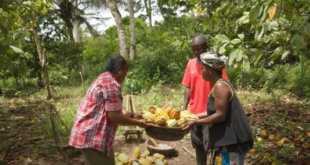India is set to impose a nationwide ban on some single-use plastic items on Oct. 2, with the goal of eliminating all such items by 2022.
India generates about 26,000 metric tons of plastic waste daily, much of which ends up as litter. As part of implementing the ban, the national railway system and Air India plan to move away from single-use plastic items, with the airline switching to birchwood cutlery, paper cups, and paper packaging for chips.
The government is also asking private industry to slash its use of single-use plastics, and some companies are already falling in line: Amazon India says it will replace bubble wrap and plastic air pillows with paper padding by June 2020, and Bangalore-based Flipkart, which is owned by Walmart, plans to eliminate single-use plastic in packaging by March 2021.

Not everyone is pleased by the efforts to reduce single-use plastics, however. The ban will result in the closure of nearly 10,000 small and midsize companies and the loss of 100,000 jobs, according to Meela Jayadev, president of the All India Plastics Manufacturers’ Association. A better approach to reducing litter would be to focus on changing people’s behavior, he says.
India’s latest draft National Resource Efficiency Policy calls for 100% recycling and reuse of poly(ethylene terephthalate) by 2025 and a 75% recycling and reuse rate of other plastic packaging materials by 2030.
 THE GLOBAL WINDOW OF TURKISH FOOD AND AGRICULTURE The Global Window of Turkish Food and Agriculture Sector
THE GLOBAL WINDOW OF TURKISH FOOD AND AGRICULTURE The Global Window of Turkish Food and Agriculture Sector









